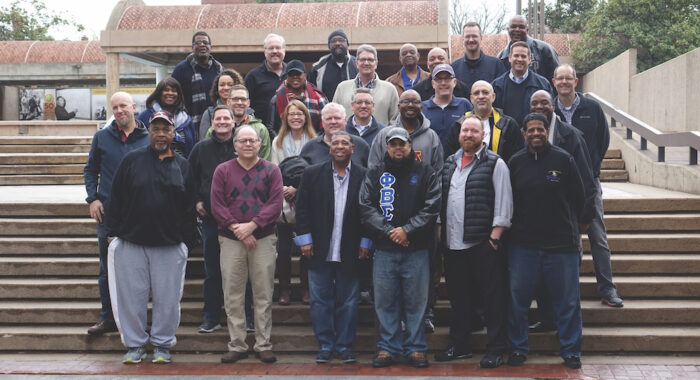While most evangelical pastors serve faithfully and with integrity, too many stories tell of leaders who have failed to reflect biblical standards or of deep-seated conflicts within congregations — both of which lead to widespread disappointment and hurt in the community.
Recent research from Gallup shows that trust in institutions in general, and clergy in particular, is at an all-time low. Also, according to the Cooperative Election Study, every birth cohort — or five-year birth window — is less religious than it was 15 years ago.
How can pastors proactively uphold the integrity of their office and protect the health and well-being of their congregations? How might church congregations intentionally pursue transparency and seek to care for their leaders well? What is the path toward renewing the Church’s witness in the world?
Two resources that can guide these efforts are the Code of Ethics for Pastors and the Code of Ethics for Congregations and Their Leadership Teams, produced by the National Association of Evangelicals. These documents articulate a vision for faithful Christian witness on the part of clergy and the congregations they serve.
In the Code of Ethics for Pastors, pastors commit to pursue integrity, be trustworthy, seek purity, embrace accountability and facilitate fairness. In the Code of Ethics for Congregations and Their Leadership Teams, churches commit to honor and support the gifts Christ gives to churches, promote the unity of Christ’s Body, practice accountability, practice good stewardship, practice hospitality and seek the welfare of the community where God has placed it.
Much like the NAE Statement of Faith, which has been the gold standard of evangelical belief in America since 1942, these codes of ethics provide biblically-rooted standards that have broad application across different denominations and traditions within evangelicalism. In fact, to create these documents the NAE established task forces composed of trusted individuals, including ethicists, pastors, denominational leaders and theologians, from a variety of evangelical traditions.
Intentional Accountability
Raymond Baptist Church in New Hampshire, an NAE member church, was one of the first churches to adopt both ethics codes, where they are used as guides for staff and volunteer leaders. Guidelines are reviewed annually. New members of the church see the codes in their membership class, and they are included in the church’s packet of official church documents.
“The ethics codes have been useful in helping new people better understand who we are as a church and how we are accountable,” said Kevin McBride, pastor of Raymond Baptist Church. “Here, when denominational affiliation is becoming less important, they provide a standard to let people see how we are accountable to each other.”
McBride also noted that one of the greatest benefits of adopting the codes is that they serve as a “neutral observer” by which both pastors and lay leaders can be accountable.
“As it is not an ‘in house’ document, it gives credibility that it was not created to address a specific internal issue or person. Its biblical foundation also allows people to see that this is not just a business management tool and provides teaching points for both the congregation and leaders to help in their own personal growth,” he said.
Clarity of Expectations
Ron Hamilton of the Conservative Congregational Christian Conference, an NAE member denomination, reflects on how codes of ethics are helpful in denominational contexts.
“It’s important to set expectations for godly conduct and character right up front. Codes of ethics can be misunderstood if they’re seen as an enforcement tool rather than a statement of values. Codes reflect our shared life, that we covenant together to live a certain way,” he said.
Hamilton noted that codes of ethics are particularly helpful with pastors. First, when mentoring and counseling pastors in the denomination, codes can serve as a critical reminder of expectations and of the nature of a pastor’s calling. Second, they can be important resources during pastoral transitions, establishing guidelines for how outgoing pastors can best support the church and the new, incoming pastor.
Compliance with codes of ethics for churches is equally important. “We remind our churches that ‘your community is watching you; you are reflecting the character of Christ in how you handle this or that situation.’ Some people would never darken the door of a church but are still quite aware of how the church handles different challenges,” Hamilton said.
The significant decline in trust in institutions and clergy should serve as a wake-up call for every pastor and congregation. If the Church today is to be effective in her mission in the world, it will begin with a fresh commitment to humility, integrity, transparency and Spirit-led accountability. Embracing this mindset of renewal is a first step to rebuilding trust that opens doors for gospel witness.
Sign NAE Code of Ethics for Pastors ![Arrow]()
Sign NAE Code of Ethics for Congregations ![Arrow]()
Since July 2020, Cullen Rodgers-Gates has been serving as the director of development and membership at the National Association of Evangelicals. In this role, he established and leads the NAE’s development program while also engaging with a growing community of active members. Prior to his work at the NAE, Rodgers-Gates spent 20 years in international service-learning and nonprofit leadership, including six years as executive director of Congo Initiative USA. Rodgers-Gates holds two degrees from Wheaton College: a bachelor’s degree in philosophy and a master’s degree in historical and systematic theology.




 View All Articles
View All Articles 






























